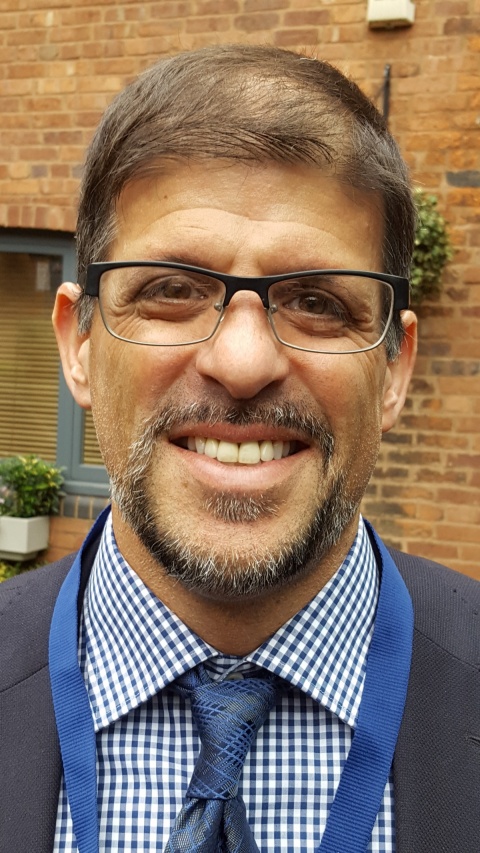Article • Worldwide Lab
Facing up to many new challenges
Medical laboratories must be pro-active if they are to meet the new challenges being presented to the sector globally, according to Dr William Morice from the renowned Mayo Clinic in America.
Report: Mark Nicholls

With clinical laboratory medicine providers facing a number of challenges across various health systems and countries, Morice offered a USA perspective from his role as Professor and Chair of the Department of Laboratory Medicine and Pathology at the Mayo Clinic and President of Mayo Medical Laboratories.
In his presentation – Leadership challenges for laboratory medicine – delivered during the Frontiers in Laboratory Medicine conference FiLM 2017, held in Birmingham, UK, he suggested laboratories need to reach out to partners, offering their knowledge to a wider sphere, and also seek to exert influence if they are to take a leadership, rather than a ‘back-office’, role.
He was speaking as clinical laboratory medicine service providers face ‘interesting and challenging’ times ahead, against a backdrop of rising demand, falling reimbursement, technological innovation, enhanced quality and governance, and the need to recruit and retain a skilled workforce.
He looked at how the changing USA’s healthcare environment was impacting on the Mayo Clinic and Mayo Medical Laboratories.
Laboratories have seen rapid growth, but there have been utilisation issues, a drive to decrease spending and then a need to look at the consolidation of lab activity in the United States.
Further uncertainties loom with the FDA proposing a ‘risk-based’ classification system for laboratory-developed tests and the as yet unknown changes that might arrive under the very new Presidency of Donald Trump.
Morice told delegates that, within the laboratory medicine sector globally, there was often not enough money available to pay for healthcare – even in countries such as China – at a time that the profession faces market disruption.
At times, the cost of not doing the test is more than the cost of doing the test in terms of the overall care cost for patients
Dr William Morice
Earlier, the FiLM 2017 delegates had heard from senior figures in the UK’s pathology, biomedical sciences and clinical biochemistry sectors about changing demands on services within the National Health Service (NHS) against a continuing backdrop of needing to reduce costs and make financial saving through service reconfiguration.
Mayo Clinic’s Department of Laboratory Medicine is part of an integrated practice with 10 divisions and 63 labs, providing the full gambit of care for patients, with some 24 million tests performed last year by Mayo’s labs.
One of the biggest challenges, he said, lay in the sector looking to exert its influence and leadership at a time that some were viewing it as a ‘back-office’ function. ‘When I took the job, we were not seen as an integral part of our practice care activities, although laboratory testing,’ he said, ‘provides a significant proportion of Mayo Clinic’s top line and bottom line revenue.’
Morice acknowledged that Mayo Clinic has been seen as ‘unique and singular’ in the past, in terms of US healthcare provision. ‘But the way we responded, and to survive,’ he explained, ‘is that we have built bridges and collaborations; we have started to work with the diagnostic and insurance companies – we strive to become part of the solution process.’
The big change, he pointed out, is in shifting away from the fee-for-service environment towards value-based healthcare and that labs were now in the era where tests must have proven consequences – if they are to be paid for – with consumer choice of laboratories driven by cost transparency.
However, he added: ‘We also know that, at times, the cost of not doing the test is more than the cost of doing the test in terms of the overall care cost for patients.’
Morice emphasised how lab managers can use data to shape patient care and drive down costs. ‘If we make the right test, we will deflect away from other tests and save money – by using lab data correctly to drive patient care,’ he added.
Mayo labs are engaging with partners – particularly in IT and other areas of healthcare areas - applying knowledge into the systems of partner organisations, and bringing money back into the already financially-strong department, which uses its returns to support the research and education mission of Mayo Clinic, a non-profit entity.
‘We have moved to a period of frequent change, particularly with next generation sequencing, and we have to be much more proactive about understanding what is happening in our environment and then participating in it from a leadership perspective,’ Morice concluded. ‘We have to get people engaged so we feel we are driving some of the change, rather than just responding to it.’
Profile:
Dr William Morice is chair of the Department of Laboratory Medicine and Pathology at the Mayo Clinic, Rochester, USA, and President of Mayo Medical Laboratories. A graduate of Mayo Medical School (1987-1994), he was previously Chair of the Division of Haematopathology at Mayo. His research interests include Lymphoproliferative disorders of cytotoxic T-cells and natural killer (NK) cells and the laboratory evaluation and diagnosis of plasma cell proliferative disorders and B-cell disorders with plasmacytic differentiation.
30.03.2017











